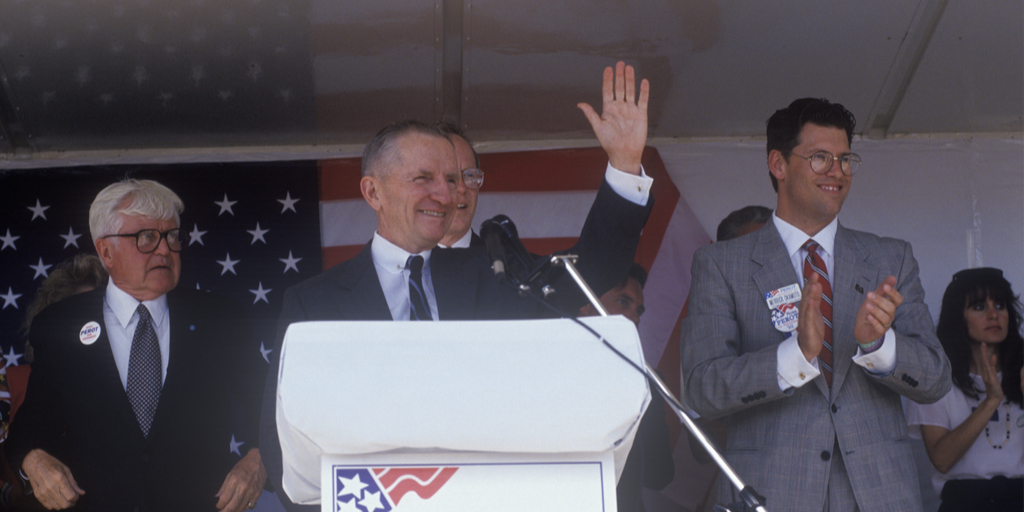The text and Hamilton’s commentary are sufficiently clear: those in office are subject to impeachment and trial; those out of office are not.
Democracy in America: The Electoral College versus Third Party Candidates
These days, one frequently hears criticisms from Democrats of the elections of Donald Trump and George W. Bush because they did not receive a majority of the popular vote. I can understand the frustrations of a political party losing under these circumstances. But it is not clear that the Electoral College is a big problem for our democracy. There are arguments for and against the Electoral College. But even if one believes that the Electoral College is a defect, I believe there is a much bigger defect in our electoral system: the possibility of a third party candidate changing the outcome of an election.
In 1992, George Bush ran against Bill Clinton, but a third party candidate Ross Perot also entered the election. In an election that saw Clinton beat Bush in the popular votes by 43% to 37%, Perot won 19%. Since Perot appealed to many traditional Republican voters, there is a good reason to believe that Perot changed the election results. If Perot took significantly more votes from Bush than Clinton, then Bush might have won the election if Perot had not run as a third party candidate.
The basic problem occurs when the third party candidate splits the votes between the first two. These changes can be consequential. There is a strong case for concluding that Woodrow Wilson—an extremely important and in my opinion bad President—was only elected in 1912 because Theodore Roosevelt ran as a third party candidate and split the vote with William Howard Taft. (Complicating matters, though, is that a fourth party candidate, Eugene Debs, won 6% of the vote as the Socialist Party’s standard-bearer.)
Another more recent example involves the third-party candidacy of Ralph Nader, who ran in the presidential election of 2000, with George W. Bush and Al Gore. In an extremely close election, Bush won the electoral vote, but Gore won the popular vote by 500,000 votes. Nader received nearly 3 million popular votes. Without Nader, Gore might have won a big victory in the popular vote and secured a victory in the Electoral College. (Of course, there was another defect in that election—a November surprise, where the release of information on the Thursday before the election of a DUI committed by George W Bush, no doubt, gave Gore a significant benefit. While such November surprises are problematic, it is not clear what can be done about them.)
There is an easy way to prevent these third-party candidates from spoiling the election. As in many other countries, election rules could require a candidate to win a majority of the vote, not just a plurality. If no candidate wins a majority in the first round, one has a runoff between the top two candidates. In that way, the winner of the election must actually be more popular than the person who comes in second. And therefore third party candidates cannot spoil an election by entering the race and splitting the vote.
Yet, one does not hear much about the problem of third-party candidates or this reform. No doubt, this is because a third party candidate has not affected elections in recent years. But, in my view, it is a more serious defect than the Electoral College and we would be much better off if we eliminated it. In this era of hyperpartisanship, a third party candidate that spoils an election will only add fuel to an already out-of-control political conflagration.


